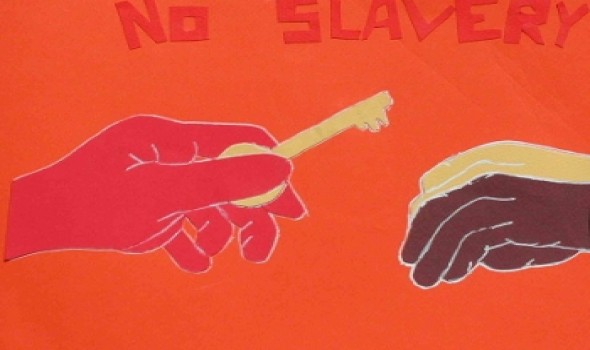Abolishing slavery - learning from the legacy
Abolishing slavery - learning from the legacy

In 2013, two films covered the topic of slavery: "Django Unchained" and "Lincoln." Whilst Django puts a slave at the centre of resistance against slavery, Steven Spielberg's "Lincoln" utilizes the more traditional route of politicians taking centre stage in the abolition of slavery.
How true is it that slaves and ordinary people played a part in the abolition of slavery? Renowned author historian Marcus Rediker says in his latest book, The Amistad Rebellion, that "the American actors-abolitionists, attorneys, judges, and politicians have elbowed aside the African ones whose daring actions set the train of events in motion. Curiously, the American legal system has emerged as the story's hero, the very system which in 1839, held two and a half million African Americans in bondage.” Slaves have often been written out of the history of the rise against slavery, even though the only successful slave revolt in history was led by a slave called Toussaint L'ouverture in Haiti in 1791.
One of the major reasons for abolition of slavery was due to direct action of black people on the plantations. Many slaves went on strike or demanded wages for their work. Slaves burnt down crops and houses of their owners, and some ran away. Some ex-slaves in England also helped to end slavery. They wrote stories about their life on the plantations so ordinary people would know how awful the treatment was and join the abolitionist’s cause. In 1788, Parliament received petitions wanting the Slave Trade to be abolished. In Manchester, in 1792, 20,000 people signed a petition out of a population of 75,000. Huge meetings were held for the cause all over the country.
After the Slave Trade was abolished in 1807, the campaigns didn't end. Ordinary people wanted to abolish slavery. In 1814, one and a half million people signed petitions demanding this. The anti-slave trade campaign was the first mass political campaign in British history with the active involvement of workers.
In his brilliant book Staying Power: The History of Black People in Britain, Peter Fryer describes the campaign. In 1794, a massive public meeting took place in Sheffield: where thousands of metal workers unanimously endorsed freedom for the slaves, to “avenge peacefully ages of wrongs done to our Negro brethren.” The chair of the meeting, Henry Redhead Yorke, had called on demonstrators to “let the African, the Asiatic, the European, burst asunder their chains and raise a pious war against tyranny.”
What is the legacy of the abolitionists and the fight against slavery? The lesson here is that change doesn’t just come through the corridors of power, but from ordinary people around the world doing something extraordinary. So next time someone asked you to sign a petition or join a protest to stop poverty or injustice, it’s worth thinking about the history of people making their voice heard, giving the confidence to others to join them. Article by: Salman Mirza. Salman Mirza works for a charity based in Birmingham www.asirt.org.uk and is an active trade unionist in UNISON


